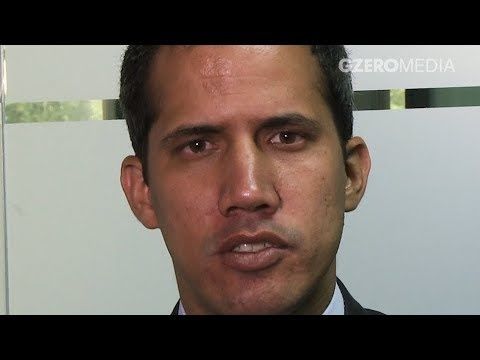GZERO interviews Venezuelan opposition leader Juan Guaidó.
It once seemed so encouraging for Venezuela's political opposition: Millions in the streets. Strong international support. An unpopular autocrat seemingly on the ropes. But what a difference a month can make.
In early March, Juan Guaidó — the man recognized by dozens of countries as Venezuela's interim president — returned home to cheering crowds. He had been abroad for almost two weeks, currying favor with other regional governments, and trying to get much–needed humanitarian aid to his countrymen.
But in the days since then, little has changed. Venezuelan President Nicolás Maduro remains in power, despite having overseen one of the most staggering economic collapses in modern history.
Guaidó's overtures to the military to drop their support for Maduro have had little effect — only an estimated 1,000 soldiers and national police have defected, despite huge protests, growing sanctions pressure, and the whispered threat of US military action. The top brass remains loyal to Maduro.
In fact, after a few weeks of mostly ignoring Mr. Guaidó, Venezuelan authorities have quietly ratcheted up pressure of their own. Earlier this week, in a pre-dawn raid, the intelligence services detained Mr. Guaidó's chief of staff at his home, raising the possibility that the government may be closing in on Mr. Guaidó himself.
With relatively few tangible gains to show recently, what is Guaidós plan? Is he open to US military intervention? What would a realistic transition look like?
He sits down with us to answer these very questions. Watch the interview here.
More For You
At the 2026 Munich Security Conference, entrepreneur and Project Liberty founder Frank McCourt makes the case that the internet, and the AI systems rapidly reshaping it, must be redesigned to serve people, not platforms.
Most Popular
At the 62nd Munich Security Conference, Parag Khanna, founder and CEO of AlphaGeo, says globalization isn't dead, it's evolving. Speaking with GZERO’s Tony Maciulis, he explains that countries are forming flexible alliances that expand and shrink based on their interests. “You’d rather be in the tent...if it suits your interest than not in it,” Khanna notes, highlighting how the US, Europe, and Asia are adapting to shifting global priorities.
Sovereignty has become one of the most powerful, and least defined, words in tech policy. At the 2026 Munich Security Conference, SAP global head of government affairs, Wolfgang Dierker, explains why governments and enterprise customers are demanding more control over their data, cloud infrastructure, and AI systems amid rising geopolitical uncertainty.
On the sidelines of the 2026 Munich Security Conference, Annemarie Hou, Executive Director of the United Nations Office of Partnerships, joined Tony Maciulis to discuss the power of women leaders in global decision-making.
